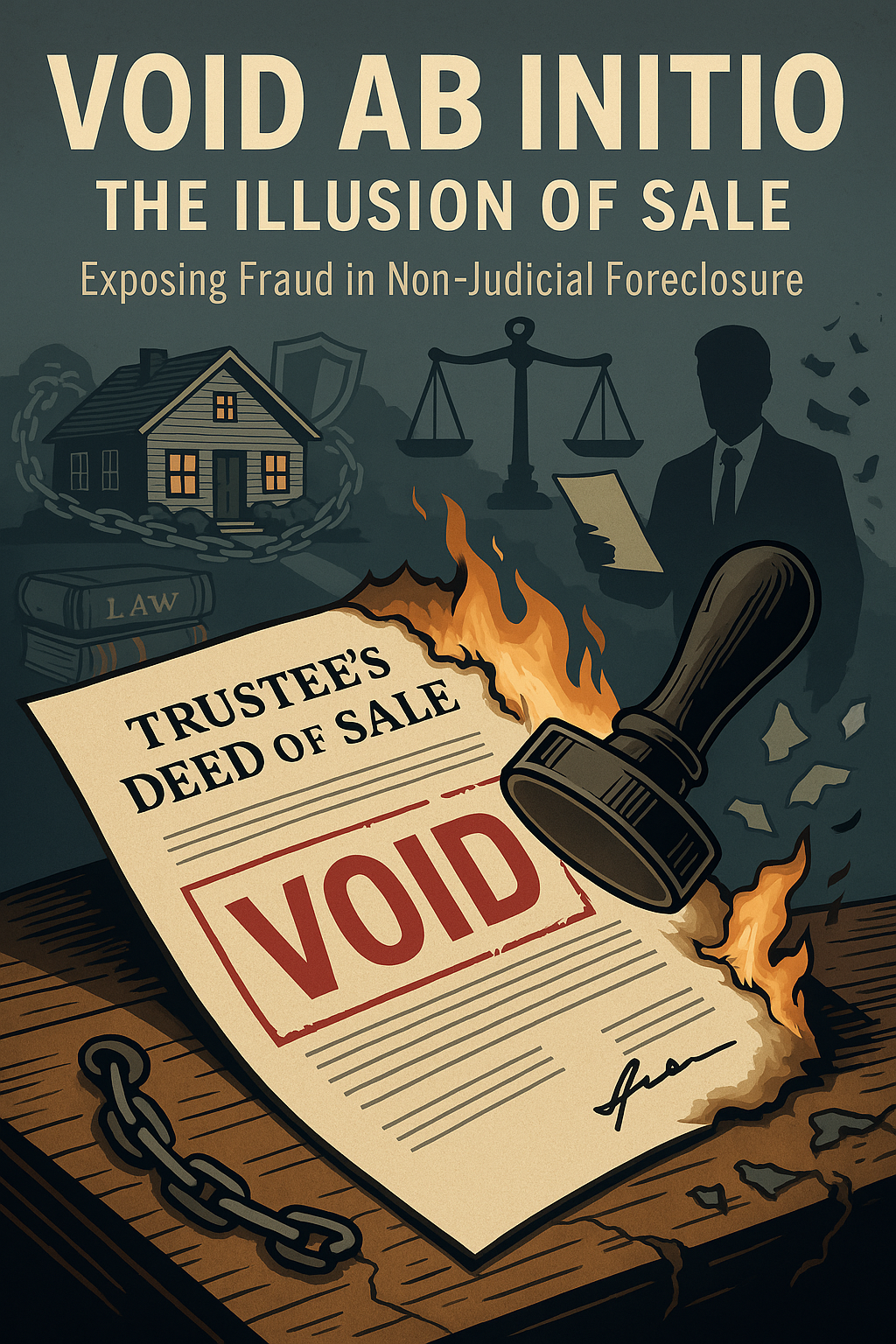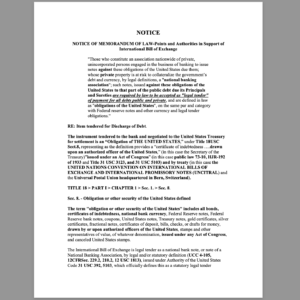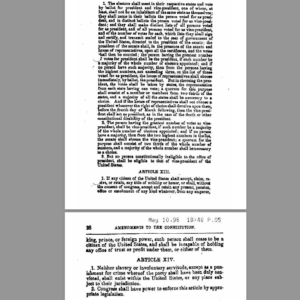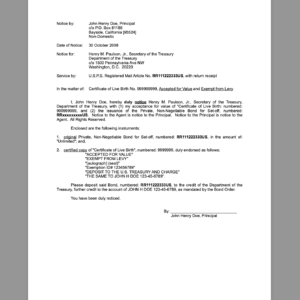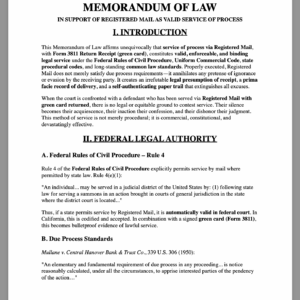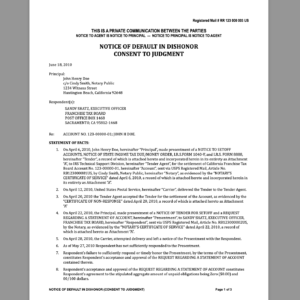In today’s mortgage and foreclosure landscape, countless homeowners have unknowingly become victims of fraudulent trustee sales carried out through non-judicial foreclosure processes. These transactions, often masked with official-looking documents and legal jargon, may appear legitimate—but under contract and property law, they may be void ab initio, or invalid from the very beginning.
This article explains what happens when a homeowner lawfully conveys their home to a private trust, how loan servicers and unauthorized trustees railroad people into illegal sales, and how fraud nullifies the entire process—no matter how much time has passed.
🔒 Placing Your Home in a Private Trust
When you transfer your property into a private trust using a grant deed, you:
-
Remove the asset from your personal name,
-
Place it under the protection of private contract law,
That grant deed becomes the official and lawful title to the property, and the trust becomes the sole legal authority over its disposition.
⚠️ Non-Judicial Foreclosure: A Tool for Deception
Non-judicial foreclosure is designed as a streamlined, out-of-court process that allows a trustee to sell a home after a borrower allegedly defaults on a loan.
But it has become a tool for abuse and deception, especially by loan servicers and mortgage debt collectors, who:
-
Ignore due process,
-
File fraudulent assignments of trustee,
-
And initiate foreclosure sales without legal authority.
These actions often occur in the midst of administrative processes—such as Qualified Written Requests (QWRs), Debt Validation Notices (FDCPA), or private arbitration procedures—where the homeowner is actively asserting their rights or disputing the debt.
Instead of responding in good faith, servicers railroad homeowners through foreclosure, bypassing the administrative process and attempting to finalize the theft through a Trustee’s Deed of Sale.
🧾 They’re Not Selling the Home—They’re Selling the Lien
Here’s the core truth:
The Trustee’s Deed of Sale in a non-judicial foreclosure does not transfer ownership of the home. It transfers only the security interest—the lien—that is attached to the home.
If the trustee assignment is fraudulent, and the lienholder has no valid standing, then the trustee is selling a lien they don’t legally control.
Thus, the buyer receives no lawful title—and the sale is null and void.
❌ Why the Sale Is Void Ab Initio
Void ab initio means the action was never valid from the beginning.
The trustee’s deed of sale is void ab initio if:
-
The trustee was never properly or lawfully assigned,
-
There was no verified default,
-
The administrative procedure was ongoing,
-
Or if the sale occurred in bad faith or in retaliation.
Upon proper articulation and objection by the injured party, the entire sale collapses legally—no matter how “final” it may appear on paper.
This is supported by the maxim:
“Fraud vitiates everything it touches.”
And most importantly:
Fraud has no statute of limitations.
A fraudulent deed, once exposed, can be challenged and voided at any time, regardless of how much time has passed since the sale.
🛡️ The Trust Still Holds Title
Since the trust never authorized the sale, and the chain of title was broken through fraud, the original grant deed to the private trust remains intact.
In legal terms:
-
The fraudulent trustee’s deed conveys nothing.
-
The grant deed to the trust is the rightful title of record.
-
The homeowner, through the trust, retains full legal and equitable interest in the property.
🔚 Final Thought: Know the Game, and Stand Your Ground
Loan servicers rely on speed, silence, and confusion to ram through non-judicial foreclosures, often amidst valid administrative procedures. But when exposed and properly objected to, their actions amount to unlawful conversion, fraud, and abuse of process—not legitimate foreclosure.
A Trustee’s Deed of Sale, issued by a fraudulent or unauthorized trustee, is not worth the paper it’s printed on. It is void ab initio, and no lawful title transfers. The property remains under the authority of the trust, and the homeowner retains the power to challenge and undo the fraud.
Because in law—truth stands, fraud falls, and time does not shield the guilty.
